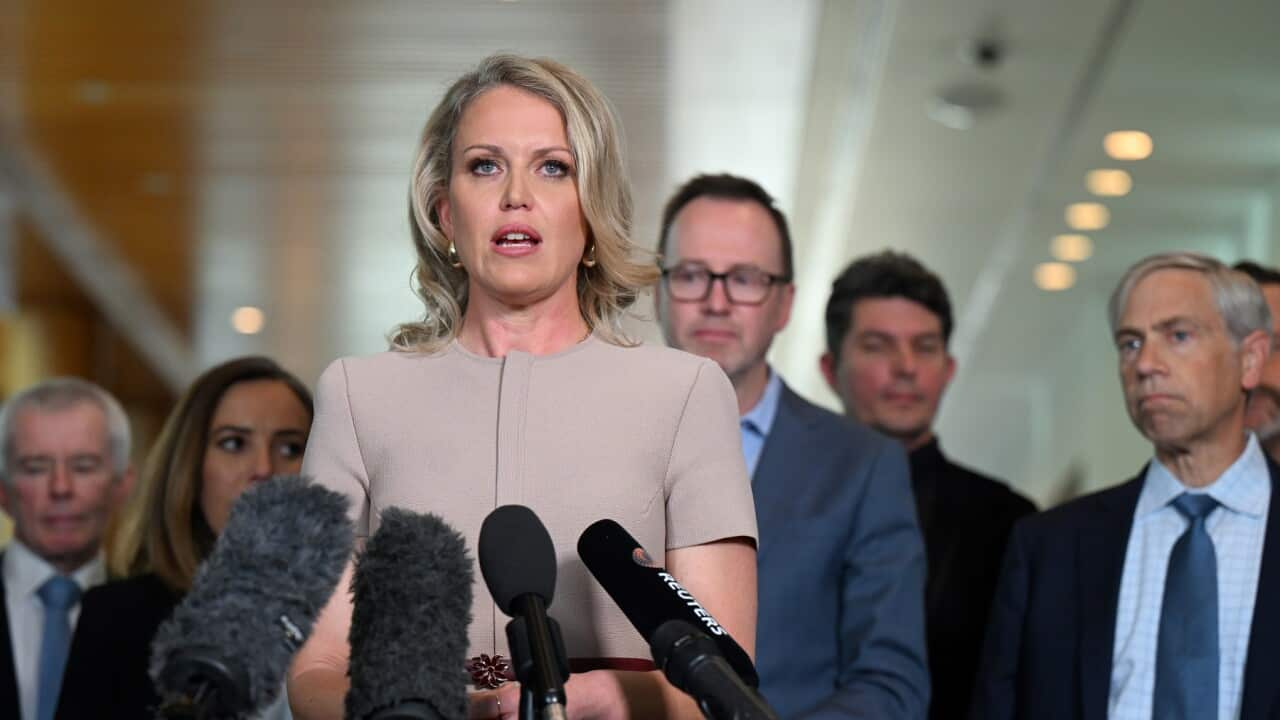TRANSCRIPT
WikiLeaks founder Julian Assange has walked free after a decade-long legal saga, but concerns over press freedom raised during his case continue.
Assange accepted a plea deal, pleading guilty to one espionage charge for the obtaining and publishing of United States military secrets.
He was sentenced to 62 months of jail time which he had already served in the United Kingdom.
His prosecution was founded upon the controversial US Espionage Act which critics say is being used to curtail the ability of journalists to report on stories significant to the public's interest.
Assange's lawyer Jennifer Robinson says his prosecution represents the criminalisation of journalism.
"And while the plea deal does not set a judicial precedent, it's not a court decision, the prosecution itself sets a precedent that can be used against the rest of the media. It's important that journalists all around the world understand the dangerous precedent that this prosecution has set."
Assange had previously been facing up to 175 years in prison for the leaking of hundreds of thousands of classified military and diplomatic documents in 2010.
While the precedent set by the plea deal is minimal in comparison to an official court ruling, the fact that the U-S was able to successfully prosecute Assange under the Espionage Act has experts concerned that this will not be the last time it is used to crack down on journalists.
Jodie Ginsberg, the Chief Executive of the Committee to Protect Journalists based in New York, says the right to responsibly publish classified information is essential to the work of journalists worldwide.
"It has been a case that has cast a very long shadow over press freedom globally. Had Julian been prosecuted, had he been extradited to the US and faced trial over these charges, it could have had very serious implications for journalists everywhere. For journalists who seek information in the public interests, who seek classified information and seek to publish it. That's what journalists do the world over, and it's very important that we protect that right fiercely."
Peter Greste is a professor of journalism at Macquarie University and the executive director of the Alliance for Journalists' Freedom.
In 2013, he and two of his journalist colleagues at Al Jazeera were arrested for their reporting in Egypt.
They were later sentenced to seven years in a Cairo prison for negatively impacting the international perception of Egypt and falsifying news.
The Australian government intervened and negotiated his departure from Egypt to Australia in 2015.
He says he empathises with Julian Assange and is happy for his release.
"I'm absolutely overjoyed that Julian is free. I understand very much from very personal experience what it's like to be imprisoned and what it's like to finally get your freedom. My experience was not a fraction of what Julian has been through, but I understand it well enough to be absolutely thrilled to see him home and in the arms of his family."
WikiLeaks and its founder Julian Assange have often been criticised for what has been described as a lack of adherence to traditional journalistic editorial guidelines.
The US government argued that the information revealed in their 2010 leaked documents failed to obscure the names of military personnel, putting their lives at risk.
Professor Greste says he respects the work that WikiLeaks has done but he wouldn't classify it as journalism.
"I think we need to think of journalism as a systematic way of gathering, organising, and presenting information in a way that's accountable to a recognised code of conduct, a set of industry standards. And on that basis, I just don't see that the way WikiLeaks handled the information makes that grade. I just don't see that it counts as journalism. That's not to diminish the value of what WikiLeaks published, but I just don't see that we can think of it as journalism. And that's why WikiLeaks and Julian Assange won their Walkley award. They didn't win it for their reporting. They won it for the contribution that WikiLeaks made to journalism and journalists who were going through the information and publishing it."
The bombshell leaked documents and videos published by WikiLeaks detailed US military wrongdoing and alleged war crimes in Afghanistan and Iraq.
Dr Emma Shortis, a senior researcher in International and Security Affairs at the Australia Institute, argues that accusations of malpractice towards Assange obscures the damning evidence contained in the leaked files.
"I think the evidence is really clear that Julian Assange himself and WikiLeaks went to great lengths to protect people mentioned in those documents. They spent a lot of time redacting information. Even the US government has admitted that there's no evidence of harm coming to anybody because of the revelations of these documents. But framing it in that way, making that argument that this put people at risk is self-serving. Because what it does is obscure the fact that what the documents revealed was genuine and real harm."
The Australian government and Prime Minister Anthony Albanese have been credited with securing Julian Assange's freedom through consistent advocacy.
However, Dr Shortis says there is a deep hypocrisy here considering the Australian government's own prosecution of whistleblowers and journalists who reveal classified information.
"There's this sense, or I guess this argument coming out of the Australian government and Australian intelligence agencies that national security requires secrecy. And that's just not accurate. Secrecy does not mean security. And I think particularly in a democracy, there's an imperative to ensure transparency and accountability and press freedom. And part of the reason Assange's case makes so many people in those communities so uncomfortable is because he and WikiLeaks really highlighted how much of that secrecy is designed not to protect citizens, but to keep them in the dark about the activities of their governments."
Professor Peter Greste agrees that Australia's own laws often fail to uphold the international standards of press freedom.
"I think we're right to criticise the US but Australia as a nation needs to be very, very careful because our legislation is far more restrictive when it comes to press freedom. We have no constitutional protection for press freedom. We are the only liberal democracy that doesn't have it. Some of our laws are the most restrictive in the world when it comes to press freedom and to journalists and their sources."
Jake Blight is Australia's Independent National Security Legislation Monitor.
He says Australia has around 875 different secrecy offenses and non-disclosure duties.
He has handed down a report on Thursday reviewing Australia's secrecy laws and providing 15 recommendations including new protections for journalists.
"Press freedom is an important part of our democracy. One of the things that brought to my attention and that I have raised concerns with and indeed made a recommendation about is a law that makes it an offence for a journalist to simply intentionally receive classified information or certain other information. So just receiving it before they've even disclosed it or done anything with it. And I've recommended that law needs to change."
He says maintaining secrecy laws can be important but he wants to ensure that journalists can't be prosecuted unless measurable harm from a confidential disclosure can be seen.
"There is some information that in the wrong hands can genuinely harm Australia's national interest, and we do need laws to protect that information, but we also need a functioning free press in Australia. So in trying to get that balance right, the law should require that when a non-official, a journalist makes a disclosure, for them to be prosecuted, there should be harm as a result."
Mr Blight says, moving forward, Australia needs to provide adequate protections for whistleblowers.
"Secrecy offenses and laws to protect whistleblowers are two sides of the same coin. We need both. I know that the government is reviewing those now, and I very much look forward to the outcomes of that review."













